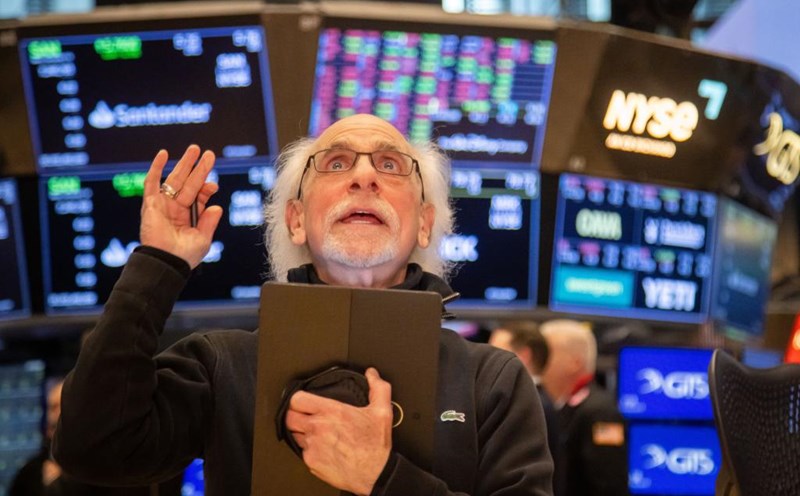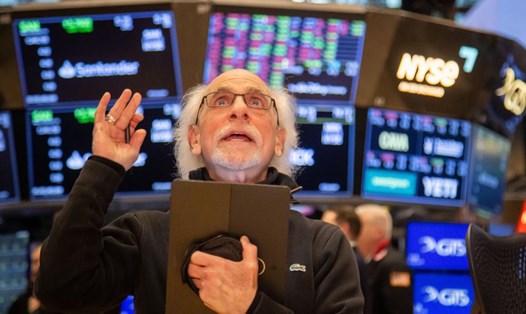In the context of the global taxposer wars by President Donald Trump, the world's financial market is witnessing a true shock: the USD index (U.S. Dollar Index) has just fallen below the threshold of 100 - the lowest level in the past 3 years - rekindling the obsession with the shock in 1971 when the US ends the golden flavor mode.
What we are going through is getting worse when President Trump took the US out of gold in 1971, Marc Chandler, chief strategist at Bannockburn Global Forex (New York), told MarketWatch. This does a great deal of damage to confidence in the position of the United States.
This crisis of confidence is leading with far-reaching geopolitical consequences: a wave of de-dollarization is rising, and according to new analysis from Grayscale - one of the worlds largest digital asset management institutions - Bitcoin could become a real challenge with the digital gold position and a market worth 22,000 billion USD of physical gold.
Chaos caused by the US trade war and uncertain foreign policy has prompted central banks to consider diversifying foreign exchange reserves, including investing in Bitcoin, according to Grayscale.
In the recently published report, Grayscale wrote: disruptions to the international financial and trade system around the US dollar could prompt central banks to seek alternative assets for reserve, including Bitcoin.
Bitcoin, with a limited supply of 21 million coin, was once considered digital gold. Although it has not shown a clear "safe haven" role like gold, experts say that it is just a matter of time and market maturity.
Grayscale cited historical data: during the sluggish inflation period of the 1970s, gold prices increased by an average of 30% per year, much higher than inflation.
Similarly, with the current developments, investors are starting to look at Bitcoin under the same lens.
The market is reassessing the long-term attractiveness of the USD as a global reserve currency, commented George Saravelos, Director of Global FX Research at Deutsche Bank. A rapid process of de-dollarization is taking place.
This shift is fueling a wave of speculation on scarce assets. The decline of the US dollar has seen other assets, including cryptocurrencies, flood, said Alex Kuptsikevich, an expert from FxPro.
In Vietnam, representatives of the State Bank have repeatedly sent out the message: Bitcoin and other similar virtual currencies are not legal currencies and payment methods.
However, in Directive No. 05/CT-TTg, Prime Minister Pham Minh Chinh directed the Ministry of Finance and the State Bank to submit a proposal for a legal framework on digital currency in March.











